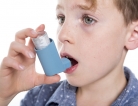PediatricsInfo Center

Mumps Cases on the Rise
Mumps cases are on the rise, according to the Centers for Disease Control and Prevention (CDC).

Flu Rx May Be Safer Than Once Thought
Despite past concerns, a popular flu medication did not appear to increase the risk of suicide in children and teens, a new study found.

World's Smallest Mechanical Heart Valve Approved
The US Food and Drug Administration (FDA) has expanded the approval of a mechanical heart valve to include a smaller size for use in newborns.

Multiple Vaccines and the Immune System
Infants receiving multiple childhood vaccines based on the routine vaccination schedule did not face an increased risk for infection, according to a new study.

Where Zika Spread, Birth Defects Were More Common
Parts of the United States that had local Zika virus transmission saw an increase in birth defects that have been linked to the virus, a new study found.

Opioid Cough Medicines: No Longer for Kids
After a new US Food and Drug Administration (FDA) decision, opioid cough and cold medications will no longer be indicated for children. Their use in this age group is not recommended.

Despite Decline, Asthma Attacks Still a Concern in Kids
Although asthma attacks have declined among children in the US, the Centers for Disease Control and Prevention (CDC) said there is still work to be done.

How Screen Time Affects Teens' Emotions
Teens who spend more time in front of a screen may be more likely to feel unhappy, according to a new study.

How Breastfeeding Affects Diabetes Risk
Women who breastfeed their babies for at least six months may be less likely to develop type 2 diabetes later on, a new study found.
Monitoring Zika's Effects
Many babies born with a smaller than normal head as a result of Zika virus infection may face health problems as they develop, according to the Centers for Disease Control and Prevention (CDC).
